Clichés and Cautionary Tales
Thursday, November 30, 2006 → by Robokku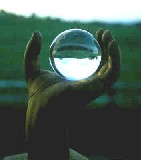 Cabril Czezlaw-Barton, my secondary school Polish teacher, had eyes bigger than his stomach. This was in part due to his larger-than-average peepers, but more due to his smaller-than-average guts. He would often show me his glass eye and when I placed it in my palm my thumb could not meet my middle finger. How there was room for it in his head I don't know. His vision in his remaining eye, being (as I suppose it was) just as large as the false one, was superb. Nonetheless, this affliction was his downfall. He claimed that with better eyesight one can see that food in fact looks unappetising, and this has since been confirmed by nutritionists with microscopes. Cabril starved to death on 17th October 1987.
Cabril Czezlaw-Barton, my secondary school Polish teacher, had eyes bigger than his stomach. This was in part due to his larger-than-average peepers, but more due to his smaller-than-average guts. He would often show me his glass eye and when I placed it in my palm my thumb could not meet my middle finger. How there was room for it in his head I don't know. His vision in his remaining eye, being (as I suppose it was) just as large as the false one, was superb. Nonetheless, this affliction was his downfall. He claimed that with better eyesight one can see that food in fact looks unappetising, and this has since been confirmed by nutritionists with microscopes. Cabril starved to death on 17th October 1987.Entreprise
 Calorie Matthews, hypochondriac, opened the Millennibun bakery in South-West New South Wales in February 2000. She worked very hard for several months and ran a tightly organized shop. However, despite her diligence, the bakery was not a financial success. Apathy set in and she became sloppy. She began selling loaves of bread nineteen to the dozen. This inaccuracy due to her lack of effort led to the eventual collapse of the enterprise. The Millennibun premises were sold at a price sufficient to cover the costs of the venture. Calorie is now back-packing in Cork.
Calorie Matthews, hypochondriac, opened the Millennibun bakery in South-West New South Wales in February 2000. She worked very hard for several months and ran a tightly organized shop. However, despite her diligence, the bakery was not a financial success. Apathy set in and she became sloppy. She began selling loaves of bread nineteen to the dozen. This inaccuracy due to her lack of effort led to the eventual collapse of the enterprise. The Millennibun premises were sold at a price sufficient to cover the costs of the venture. Calorie is now back-packing in Cork.Governance
 As a politician, he was a great guitarist, they used to say, but Anthony Charles Lynton Blair was an amateurish guitarist and bad at sports and ugly. One Tuesday he decided to run a slightly grumpy country for a laugh. He asked around and no one minded so he set to work. He had heard that government was all about "the social contract": the citizen cedes some of his freedom in exchange for protection, provision for basic needs, and so on. Despite the more expensive suit he wore that Tuesday, Tony never forgot about the people he used to consider friends before he chose to rule them: his social contract would be the best ever!
As a politician, he was a great guitarist, they used to say, but Anthony Charles Lynton Blair was an amateurish guitarist and bad at sports and ugly. One Tuesday he decided to run a slightly grumpy country for a laugh. He asked around and no one minded so he set to work. He had heard that government was all about "the social contract": the citizen cedes some of his freedom in exchange for protection, provision for basic needs, and so on. Despite the more expensive suit he wore that Tuesday, Tony never forgot about the people he used to consider friends before he chose to rule them: his social contract would be the best ever!So he took great care in writing it up and he made everybody sign it. Any of his new citizens' rights unlikely to be used were given up in exchange for defence of more important ones. The freedom to receive treatment when ill was done away with, since to be in need of treatment when healthy would be a greater injustice. Healthy people would be guaranteed their own doctor should they need one - so why worry about poor health? And people would no longer live safely in fear of dangerous crimes. Protection for those not in danger would be a priority, quelling the paranoia of parents with children tucked up in warm beds.
However, Tony's new country ran aground due to a very subtle flaw in the contract: everyone had signed away the same freedoms but some people still needed some of them.
 People falling ill, on reading the small print, found that they could not be provided with healthcare because they had not remained healthy. Victims of crime who couldn't be bothered living in a well-behaved community were deemed not to have earned their policemen and ignored. Children and other bad students, since they didn't even know anything, did not deserve education. Major, deep-set, social and political problems were left unaddressed on the basis that it was their own fault for being problems in the first place.
People falling ill, on reading the small print, found that they could not be provided with healthcare because they had not remained healthy. Victims of crime who couldn't be bothered living in a well-behaved community were deemed not to have earned their policemen and ignored. Children and other bad students, since they didn't even know anything, did not deserve education. Major, deep-set, social and political problems were left unaddressed on the basis that it was their own fault for being problems in the first place.Tony's single Tuesday of leadership dealt such an unprecedentedly debilitating whallop to his newly cursed realm that it would probably take more than two lifetimes to repair the damage. So his subjects became marginally grumpier and waited for him to go away, which, on the Wednesday, he did. Tony now collects bottles and has twenty-five.
Categories: Culture, Human, Humour, Ideas, News, Politics, Surreal, Weird


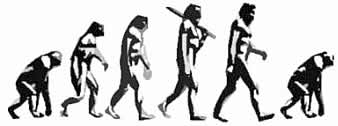

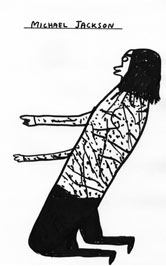
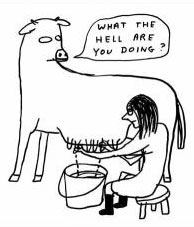
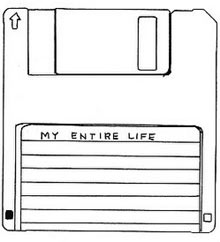
 One could - and many do - wastefully ignore wallowing, suffocating swathes of time in an effort to formulate a novel idea. Oh, how splendid it would be to be a creative! To conjure fantasies for others! To maufacture dreams for the rest! To mass-produce in Chinese plastic inaccuracies for the masses! And to pocket the profits!
One could - and many do - wastefully ignore wallowing, suffocating swathes of time in an effort to formulate a novel idea. Oh, how splendid it would be to be a creative! To conjure fantasies for others! To maufacture dreams for the rest! To mass-produce in Chinese plastic inaccuracies for the masses! And to pocket the profits!

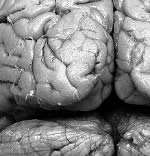
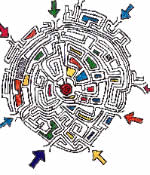














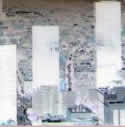


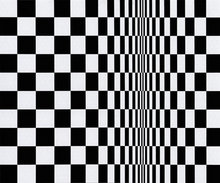

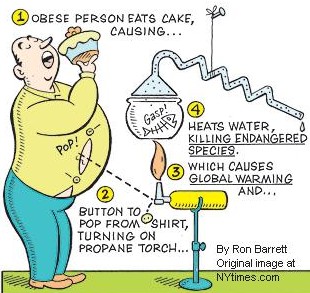

 Subscribe via RSS
Subscribe via RSS













 Via Email
Via Email








